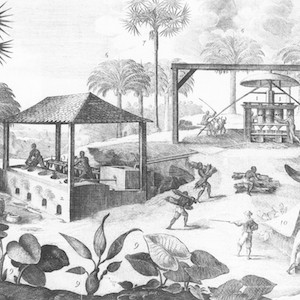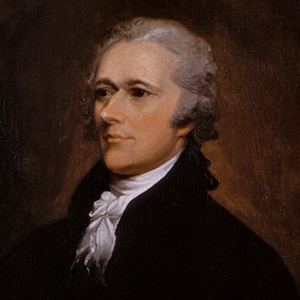North/Central America

The Mode of Exterminating the Black Army as Practised by the French
The fighting between the French and the Haitians was very bloody. When the French tried to put down Toussaint in 1802, it took them some five months with an expeditionary force of 23,000. Supplied by locals, the French seized the towns, gradually extending their control to the countryside.

Revenge Taken by the Black Army for the Cruelties Practised on Them by the French
This execution in Haiti simply suspends the French officer in the air, slowly strangling him to death. His struggles, emphasized by the convulsing legs, reveal the hatred visited on opponents, themselves guilty of so many atrocities.

Solemn Inauguration of the Statue of Liberty
Toned down and transformed from her revolutionary past, the Statue stands for liberty, even without a pike and a Phrygian cap.

Enslaved and Free Blacks in Saint Domingue
This engraving pairs images of enslaved people and free blacks in four categories: dress, deportment, entertainment, and access to water. Although there are differences between the pairs, these are not as great as they might be.

The Indigo Plant Farm
This print depicts and labels the essential components of a plantation producing indigo, a blue dye used for coloring cloth. Slaves are shown here working at different parts of the production process. In 1789, over 3,000 plantations in Saint Domingue produced indigo.

The Sugar Mill
This depiction of a sugar plantation in Saint Domingue emphasizes the grinding mill and refining vats. An overseer with a gun supervises the enslaved labor. By 1789 Saint Domingue excelled at sugar production, outpacing other French colonies and the British alike.

The Barnyard
As shown in this print, numerous activities of plantation life were carried out by enslaved people. This scene includes women and children, who formed a relatively small part of the enslaved population.

Rights of Man
Thomas Paine (1737–1809) played a vital role in mobilizing American support for their own independence, and he leapt to support the French revolutionaries when Edmund Burke attacked.

Thomas Jefferson on the French Revolution
Although deeply sympathetic to the French in general and the revolutionary cause in particular, Thomas Jefferson (1743–1826) deplored the excesses of violence that took place even before the implementation of the Reign of Terror.

Alexander Hamilton on the French Revolution
Alexander Hamilton (1755–1804) represented the Federalist Party perspective on events in France.